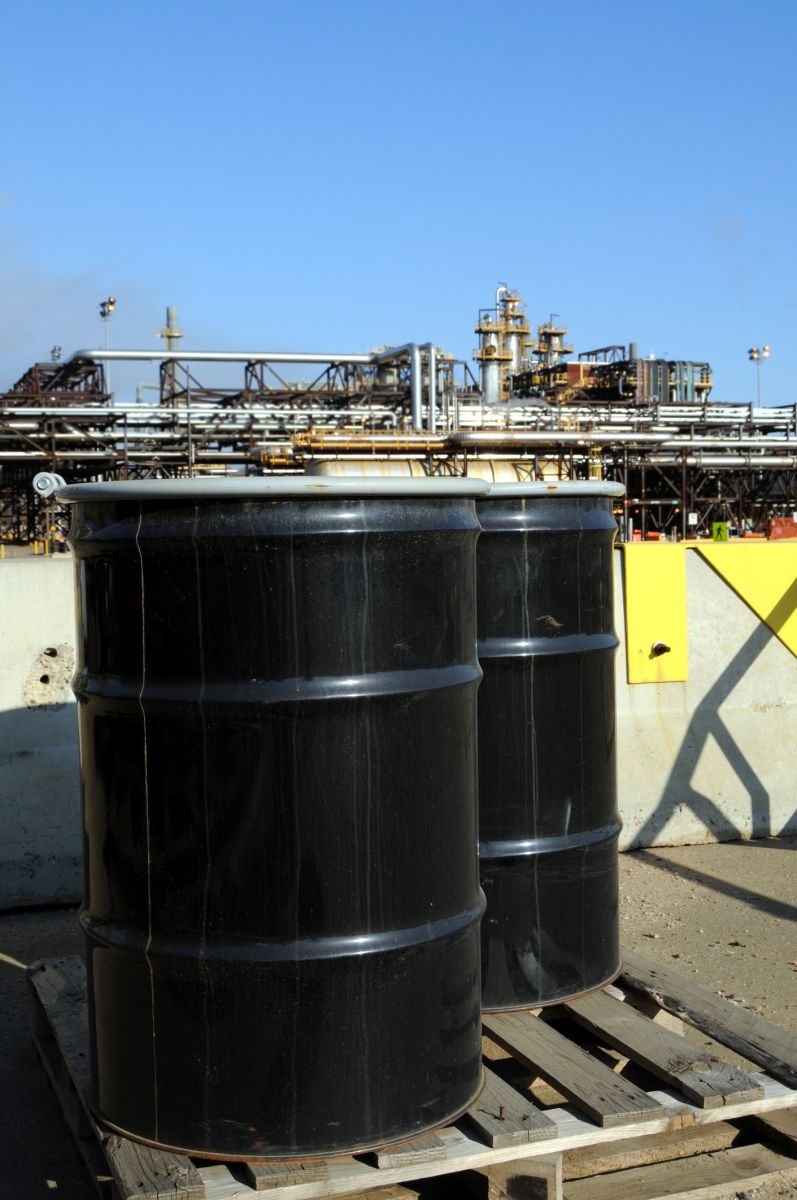
Oct WTI crude oil (CLV24) Friday closed down -0.03 (-0.04%), and Oct RBOB gasoline (RBV24) closed down -2.36 (-1.15%).
Crude oil and gasoline prices Friday settled lower. Strength in the dollar Friday and increased crude exports from Libya weighed on oil prices. Also, ongoing concerns about weak energy demand in China, the world's second-largest crude consumer, are bearish for crude prices. Heightened tensions in the Middle East limited losses in crude on Friday.
Crude exports from Libya have risen over the past week, which boosts global supplies and is negative for prices. Tanker-tracking data compiled by Bloomberg showed Libya's crude shipments averaged 719,000 bpd between September 13-19, more than double the 314,000 bpd in the previous seven days. Earlier this month, Libya's eastern government declared force majeure on all oil fields, terminals, and crude export facilities as it called for a halt to all crude production and exports due to political conflict over who controls the country's central bank and oil revenues.
Concerns that conflict in the Middle East may widen and disrupt the region's crude supplies are bullish for crude. Israeli Defense Minister Gallant announced a "new phase" in the war with regional Islamist groups as Israel moved troops toward the Lebanon border, raising fears about a broader conflict that could involve Iran, a major oil producer.
Signs of weakness in European fuel demand are bearish for crude prices after Italian refiner Eni SpA and Spain's Repsol SA, which together account for about 13% of Europe's oil refining capacity, said they were reducing processing at their plants because of weak margins, a sign of lackluster fuel demand in Europe.
A decline in crude oil held worldwide on tankers is bullish for prices. Vortexa reported Monday that crude oil stored on tankers that have been stationary for at least seven days fell by -1.5% w/w to 65.53 million bbl in the week ended September 13.
Crude prices found support after OPEC+ on September 5 agreed to pause its scheduled crude production hike of 180,000 bpd in October and November due to recent weakness in crude prices and signs of fragile global energy demand.
An increase in Russian crude exports is negative for crude. Weekly vessel-tracking data from Bloomberg showed Russian crude exports rose by +110,000 bpd to 3.25 million bpd in the week to September 15. Meanwhile, a decline in Russian crude production is positive for oil prices after Russia's Energy Ministry reported last Tuesday that Russia's Aug crude production was 9.059 million bpd, down -30,000 bpd from July but +81,000 bpd above the output target it agreed to with OPEC+.
Wednesday's EIA report showed that (1) US crude oil inventories as of September 13 were -4.2% below the seasonal 5-year average, (2) gasoline inventories were -0.5% below the seasonal 5-year average, and (3) distillate inventories were -8.6% below the 5-year seasonal average. US crude oil production in the week ending September 13 fell -0.8% w/w to 13.2 million bpd, just below the record high of 13.4 million bpd from the week of August 16.
Baker Hughes reported Friday that active US oil rigs in the week ending September 20 were unchanged at 488 rigs, modestly above the 2-1/2 year low of 477 rigs posted in the week ending July 19. The number of US oil rigs has fallen over the past year from the 4-year high of 627 rigs posted in December 2022.
On the date of publication, Rich Asplund did not have (either directly or indirectly) positions in any of the securities mentioned in this article. All information and data in this article is solely for informational purposes. For more information please view the Barchart Disclosure Policy here.






